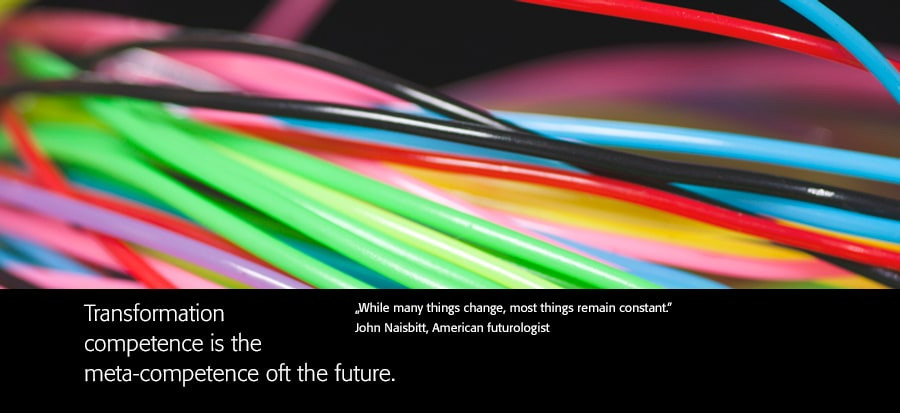

06.02.2019
Identify and Develop the Best. Invitation to Positive Change: Appreciative Inquiry!
In order to remain competitive in the future, many companies have to make a change and are thus faced with the question of how a transformation can succeed. The general consensus is that the key to success are motivated employees who courageously and optimistically support and help shape such changes. One approach that change managers have at hand to make their employees strong companions is Appreciative Inquiry (AI). AI is a team building and organisational development approach developed by David L. Cooperrider in the 1980s to make companies, organisations and groups more effective.
Appreciative Inquiry aims to identify the hidden resources of a system, activate positive potentials and motivate people to change.
Affirmative and confirmative – focused on strengths and achievements
Following the principle of positivity, Appreciative Inquiry starts with positive experiences, which means that instead of criticism and problems, change requests are formulated.
Moreover, the anticipatory principle is applied: what we focus our attention on is strengthened. AI means that willingness to change is initiated by focusing on what already works well. This is why AI workshops or team buildings begin with questions about best practice examples and learning successes. Once "the best" is identified, it can be continued and thus positively influence your company or team development.
Unused potential as a resource for learning and development
Appreciative Inquiryis based on the idea that every organization, team and individual has undreamt-of potential, which can be rediscovered through the reflection on good feelings and positive experiences as well as the appreciative view on highlights and achievements, and thus mobilize energy.
This is how Appreciative Inquiry works: the 5-D Cycle
- DEFINITION: During the preparation phase, your core team defines one or more topics that are positively formulated according to the basic idea of AI.
- DISCOVERY: The discovery phase serves to explore and understand what has already been achieved and under what basic conditions. What is to be cultivated in the future is identified. For this purpose, appreciative interviews are conducted, which are the heart of Appreciative Inquiryand are intended to reveal forgotten insights.
- DREAM: Once all persons involved have agreed on which events and experiences can be used as a point of reference in order to realise a promising further development, a future-orientated concept will be created.
- DESIGN: Their ideas for the targeted future conditions are translated into verifiable descriptions. The design phase is meant to create forward-looking statements on the basis of convincing statements.
- DESTINY: During the last phase, the focus is put on the planning of specific measures to realize the jointly developed vision of the future.
By identifying oneself with positive examples during the Discovery phase and by recognizing which basic conditions lead to good results, the basis for vitality and willingness to change is laid.
To put it briefly and simply, persons involved in Appreciative Inquirydo not moan about the "half-empty glass", but pour the glass “half full" and raise it to each other cheerfully.


